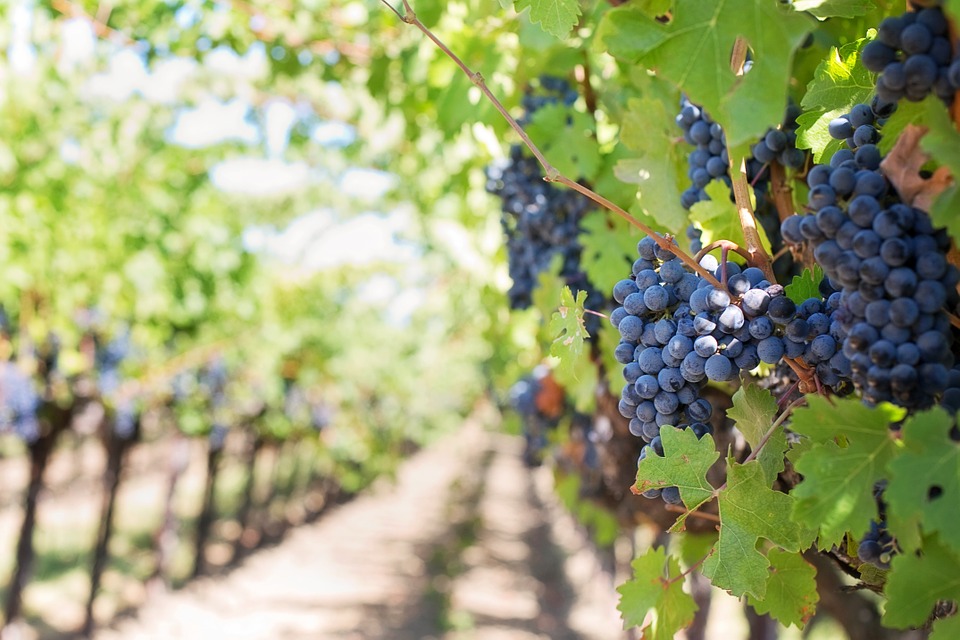IMAGE SOURCE: Pixabay.com
It’s almost 150 years since the foundation of the Umpqua Valley winegrowing region; undoubtedly, the most treasured collection of wineries and vineyards in the heart of Oregon. Sandwiched between the Oregon Coast Range and the Cascades, this 65-mile long area features valleys and hills on the same latitude as some of Western Europe’s most prestigious winegrowing regions. Named after the well-known fishing river which runs parallel to the region, over the years, Umpqua Valley has quickly developed a world-class reputation for the quality and innovation of its wine. Oregon as a whole is regarded as America’s fourth-largest producer of wine, with over 900 vineyards and 515 wineries in operation in 2012.
The history of winegrowing in the Umpqua Valley region dates all the way back to the late 19th century, when a group of German immigrants established the valley’s inaugural wine grape vineyard after previously working for the Beringer Brothers. The Beringer Brothers was previously the longest operating vineyard in the Napa Valley and their work here had given the Germans the inspiration to take wine production into the North-West.
From Pinot Noir to Tempranillo: the evolution of Umpqua Valley
Once the period of prohibition had elapsed, which lasted from 1920 to 1933, Umpqua Valley steadily accrued more vineyards as entrepreneurs began to acknowledge the quality of the soil at the valley floor level, as well as on the hillsides that had silt and clay structures; both of which are renowned for providing excellent winegrowing conditions. Hillcrest Vineyards was established in Roseburg in 1961 by a man named Richard Sommer, who has since been recognised in the industry as the ‘Father of Oregon wine’ after becoming the first to plant Pinot Noir in Oregon despite his Californian counterparts insisting Oregon would not have the right climate to grow wine grapes here. More recently, in 2014, Hillcrest Vineyards was named as one of only 15 vineyards on the planet to be recognised as global innovators at an event in Vienna, Austria.
The 1970s were particularly fruitful for Umpqua Valley, with a string of new vineyards established. The most notable being the Henry Estate Winery, owned by Scott Henry, who has since shot to fame for his innovation in creating a trellis system for his winery, greatly enhancing the yield of his grapes and the winery’s overall efficiency. So serious were the people of Umpqua Valley about their winegrowing that the Oregon Winegrowers Association was founded in 1969. Next year, it celebrates half a century of protecting the investments of its winegrowers, whilst advocating the continued sustainability of wine grape growing and production in throughout the state.
“Umpqua Valley hills” (CC BY 2.0) by Sarah McDevitt
Fast forward to the present day and the Umpqua Valley is home to at least five predominant varieties of winegrowing. The most common being Pinot Noir, Pinot Gris, Riesling, Tempranillo, and Syrah. The valley’s soil remains as diverse as its climate, with some reports claiming up to 150 different soil types being present here. Much of the soils are derived from a blend of volcanic, metamorphic and sedimentary rocks and are subsequently rich in minerals. The Umpqua Valley is fast becoming a tourist attraction in its own right, with dozens of heritage homes and museums, as well as boutique cafes and restaurants serving up delicious produce from the Valleys. In fact, the nearby Seven Feathers Casino Resort offers private wine-tasting tours across the Umpqua Valley, with the chance to sample production from at least three different wineries in the region.
It’s certainly not the first time that casino resorts have been inspired by popular culture to provide additional services and attractions to their customers. For instance, most casinos on the Las Vegas strip will offer their guests trips to see the Hoover Dam and the Grand Canyon. According to Betway, the intrinsic connection between casino life and popular culture is by no means one-way either. Casino culture features heavily in recognisable works of literature from around the world, with Russian novelist Fyodor Dostoyevsky enchanted by the concept of gambling in his 1867 novella, The Gambler. Meanwhile, casino resorts have provided a platform for some of the world’s most celebrated musicians and artists to perform. Since the 1960s, Las Vegas has hosted residencies from Elvis Presley to Frank Sinatra, cementing ‘Sin City’ as the entertainment capital of the world.
Ushering in a new era of large-scale wineries
Those Seven Feathers Casino Resort guests fortunate enough to venture out to Umpqua Valley today will witness the region entering an era of larger vineyards. Those establishing wineries in recent years have planted grapes across areas of between 100 and 200 acres; five to ten times the size of the traditional vineyards developed in Umpqua’s early days. Those new to Umpqua Valley are also trying hard to expand the region’s grape list, encouraging new flavours from around the world such as Grenache, which was originally grown in the southern Rhone.
It’d be quite possible to spend an entire vacation pottering in and around the Umpqua Valley. Just a couple of hours’ drive from here sits the Crater Lake National Park, which offers a plethora of recreation and adventure activities for those that way inclined. Meanwhile, the spectacular Diamond Lake affords majestic views across the Cascades and is a popular summer haunt for fishing, mountain biking, horse riding, and running events. Oregon as a whole is one of the most understated states throughout North America and Umpqua Valley is one major reason why.






